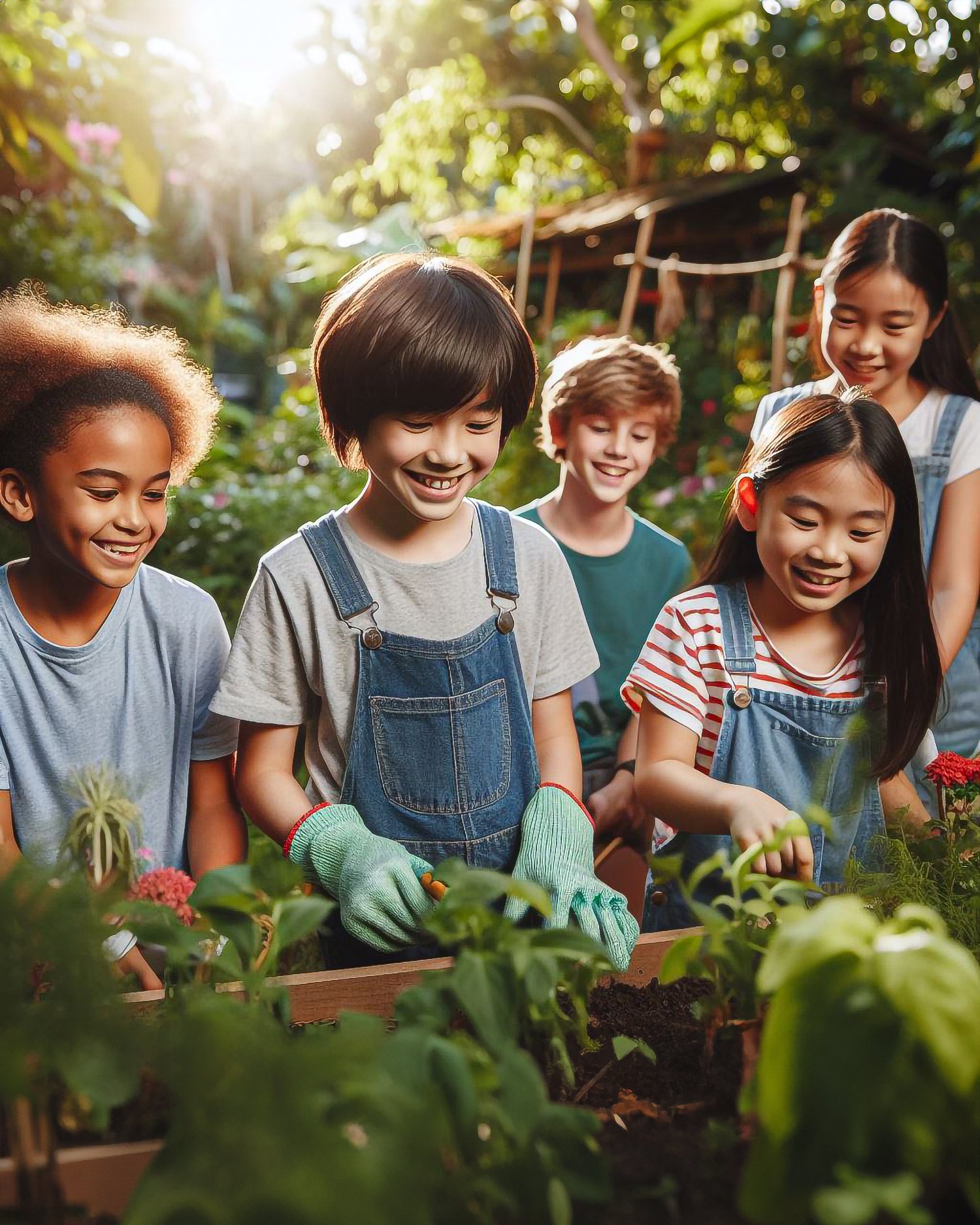Growing Up Green: The Mental Health Benefits of Eco-Friendly Living for Kids
In contemporary discussions on child development, there has been increased recognition of the pivotal role that eco-friendly living environments play in promoting children's psychological and emotional well-being. Empirical research supports the notion that engaging with green spaces and sustainable practices can significantly enhance children's mental health.
For example, spending time in natural surroundings and participating in outdoor activities has been demonstrated to reduce stress, anxiety, and depression while concurrently enhancing attention and cognitive function. Furthermore, encouraging responsible and sustainable practices such as composting, gardening, and recycling can instill within children a sense of accountability and purpose, promoting positive self-esteem and confidence.
Many studies have underscored the positive impact of green environments on children's cognitive functions and memory. Notably, a study indicated a 5% improvement in working memory among schoolchildren exposed to greener surroundings. This enhancement is ascribed to several factors, including the tranquil nature of green spaces, reduced exposure to urban noise and pollution, and the opportunity for increased physical activity within these environments.(1) So overall, creating eco-friendly and sustainable living environments is essential to fostering healthy, resilient, and happy individuals. However, what are some other benefits of living a greener life?
Cognitive Enhancement
Exposure to greenery directly correlates with improved concentration and academic performance in children. Viewing green spaces from school windows or walking in parks has been linked with heightened academic achievement. Additionally, children residing in greener neighborhoods tend to exhibit lower stress levels and depression, contributing to a healthier and happier state of being.(2)
Academic Performance
Beyond cognitive and academic benefits, green spaces play a crucial role in children's overall physical, mental, and social development. These benefits range from higher birth weights and increased physical activity to better balance and motor coordination. Moreover, children with regular access to green spaces show fewer behavioral and social problems and experience a boost in mental health and wellbeingwellbeing. This includes reduced stress and depression, even in challenging environments such as in humanitarian contexts.(3)
Mitigating Urban Mental Health Challenges
Urban environments, often linked with elevated mental health issues, pose unique challenges to child development. However, increasing accessible green spaces in urban areas can mitigate these risks, thereby enhancing children's development. Studies have found significantly higher risks of depression and anxiety in urban populations compared to rural ones. The presence of green spaces in cities is a vital factor in countering these adverse effects and fostering healthier urban living.(4)
Emotional Wellbeing
Creating eco-friendly living spaces at home significantly impacts children's emotional well-being and cognitive development. Such environments are conducive to reducing mental health risks. Children growing up in eco-friendly surroundings demonstrate better cognitive development and are more adept at regulating their emotions without excessive stress.(5)
Reduction in Stress and Mental Health Disorders
Embracing an eco-friendly lifestyle, which includes participating in nature-based activities, has been associated with lower levels of stress, anxiety, and depression. This correlation is attributed to the positive psychological effects of interacting with nature and the overall well-being well-being that stems from contributing to environmental conservation.(6)
Integrating eco-friendly practices and green spaces into the lives of children is essential for promoting their mental health and well-being. This can lead to significant cognitive improvements, emotional stability, and a healthier approach to life. We must foster eco-conscious living among the younger generation to ensure a brighter future for our planet. Instilling these values early on can empower us to shape an environmentally responsible and aware generation, inspiring a brighter future.
---
Footnotes
1. "Ecotherapy for Children: More Green Spaces At School, Better Memory And Cognitive Function In Kids" - Study demonstrating the cognitive benefits of nature exposure in children (www.medicaldaily.com).
2. "The Necessity of Urban Green Space for Children's Optimal Development" - UNICEF report on the correlation between green spaces and improved academic performance in children (www.unicef.org).
3. Ibid. - Discussion on the comprehensive developmental benefits of green spaces for children.
4. Ibid. - Analysis of the mental health implications of urban living and the mitigating role of green spaces.
5. "Mental Health Benefits of Going Green: Why It Feels So Good" - Report on the positive impact of eco-friendly home environments on children's well-being (anzmh.asn.au).
6. Ibid. - Insights into reducing stress and mental health disorders through an eco-friendly lifestyle.


